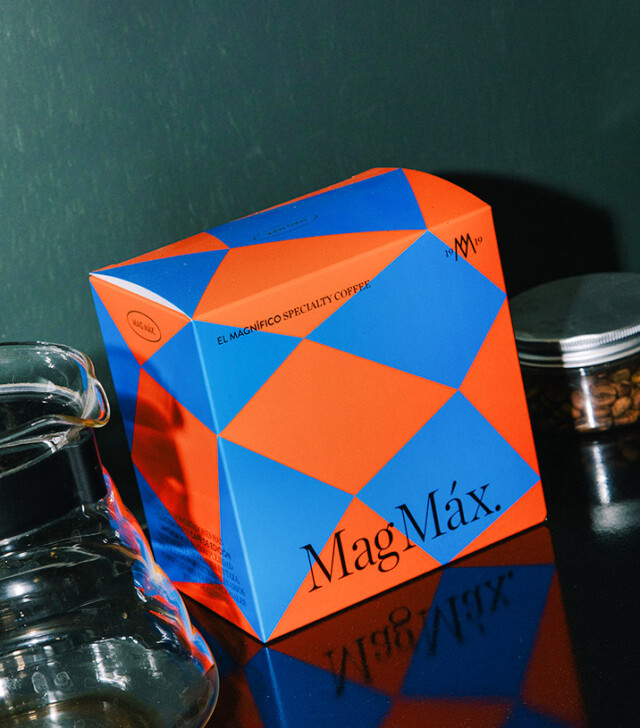Colombia Paraíso 92 Geisha
Every year, around this time of year, we select exceptional small batches produced by outstanding coffee growers.
This 2025 selection includes SL28, Pink Bourbon, Geisha, and Bourbon Honey varieties.
The Farm
In the mountains of Piendamó, Cauca, at an altitude of over 2,000 meters, lies La Macarena farm, owned by Wilton Benítez, a coffee grower with more than 25 years of experience and a leading figure in Colombian specialty coffee. Along with his other farm, Paraíso 92, Wilton has transformed these spaces into veritable agricultural laboratories where coffee tradition blends with scientific innovation.
His work focuses on meticulously designed processes: from classic washed methods to controlled anaerobic fermentations and techniques like thermal shock, which enhance sweetness, body, and aromatic complexity. This vision allows him to obtain coffees with unique profiles, featuring bright fruity notes, floral nuances, and a clean sweetness, recognized worldwide.
More than just farms, La Macarena and Paraíso 92 are examples of how passion, science, and tradition can converge to elevate Colombian coffee to its highest expression. On the other hand, El Paraíso 92 serves as the nerve center for its other two farms, producing more than 20 varieties of coffee using cutting-edge methods. The farm has a microbiology lab, a quality control lab, and a processing plant. The meticulous processes applied to the various coffees begin with: rigorous cherry selection, sterilization, and characterization; followed by the initial anaerobic fermentation phase. It’s worth noting that the number 92 refers to the 92 families hired each year for the harvest on their farms.
At Cafés el Magnífico, we were very fortunate to meet Wilton last year, where we had the great privilege of tasting together in our tasting lab. This year, we continue to feature their special lots this holiday season.
Gesha Variety
Known worldwide as the Champion or Champagne of coffee varieties, Geisha was discovered in 1931 in the village of Gesha or Gecha. In this isolated location in the Bench-Maji region of southwestern Ethiopia, it was found by botanists collecting seeds for study.
A few years later, the Kenyan Director of Agriculture requested more seeds from the area. Thus, in 1936, Richard Whalley, the British consul in Maji, collected 10 pounds of seeds with the help of members of the Tishana tribe. These seeds were sent to Kitale, the site of Kenya’s coffee research center, and to Tanzania, where it first became known as Geisha.
In the 1950s, the FAO sent some Geisha seeds, reference VC496, to the Tropical Agricultural Research and Higher Education Center (CATIE) in Costa Rica for study in its varietal park. From there, via Costa Rica, it arrived in Panama, specifically in the Boquete area, thanks to Don Pachi Serracín in 1963.
Beyond Ethiopia, its homeland, and Panama, where it found its ideal terroir, Geisha is now cultivated in other coffee-growing countries such as Malawi, Colombia, Costa Rica, Mexico, Taiwan, and Indonesia, among others.
Process Method
The cherries are hand-picked and sorted by size and density. They are then sterilized with ozonated water and ultraviolet light before pulping.
Fermentation takes place in anaerobic bioreactors for 52 hours, inoculating with Saccharomyces cerevisiae var. diastaticus yeast, which imparts fruity aromas with a spicy character and citrus notes. During the process, parameters such as pH (5.5) and Brix (18) are monitored.
After fermentation, the coffee is washed with hot water (75 °C) and dried in controlled mechanical equipment at 38 °C for 46 hours, ensuring stability and preservation of aromatic compounds.
The result is a Geisha coffee with great aromatic complexity and a very distinctive fruity, citrus, and spicy profile.
Origin
According to the boundaries established in the application for Protected Designation of Origin (PDO) recognition for Cauca Coffee, coffee under this geographical indication is produced in 29 municipalities, at an average altitude of 1,758 meters above sea level, though this can extend up to 2,100 meters above sea level. The region has a rainy season and homogeneous volcanic soils.
Perhaps the only climatic characteristic that is subject to greater variability in this region, compared to any other coffee-growing region in Colombia, is the daily temperature range: it fluctuates between 11°C and 18°C.
These temperature variations between day and night are essential to understanding the quality of Cauca Coffee. The low nighttime temperatures, associated with relatively high altitudes, slow the ripening process of the coffee bean, resulting in higher levels of acidity and very distinctive sweet notes.
39,50 € – 158 €
This item will be available at a future date. Free shipping from €40 purchase

